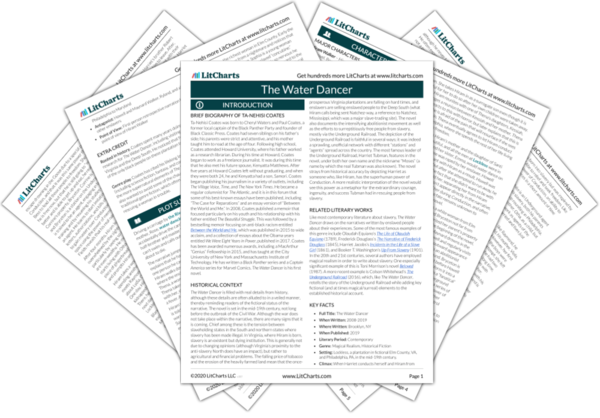AI ToolsNew
Tools to make learning and teaching easier
|
Previous
Chapter 1
|
The Water Dancer: Chapter 2 Summary & Analysis |
Next
Chapter 3
|


Upgrade to unlock the analysis and theme tracking for all of The Water DancerThe Water Dancer!
Get LitCharts A+